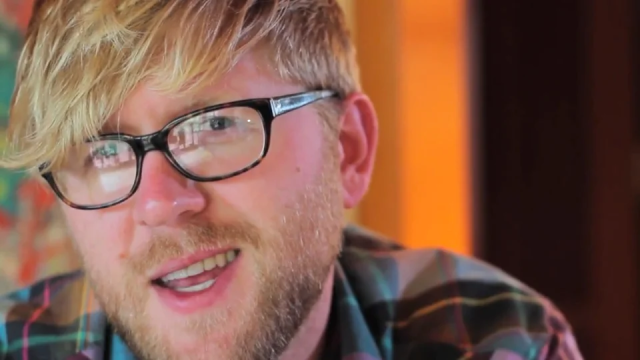This article was originally published on August 14, 2012.
Founding editor Peter Rojas gave birth to Gizmodo, but Joel Johnson changed its diapers in the early days. Ten years on, the site still shows traces of Joel’s unmistakable voice and editorial judgment. Gizmodo recently contacted Joel to demand an explanation.
[referenced id=”1806857″ url=”https://gizmodo.com.au/2022/08/this-is-how-gizmodo-started-2/” thumb=”https://gizmodo.com.au/wp-content/uploads/2022/08/02/17vv4f46scweijpg.jpg?w=300″ title=”This Is How Gizmodo Started” excerpt=”This article was originally published on August 13, 2012.”]
First, give the rough dates you worked here as EIC, and mention a few highlights — favourite posts, catastrophic failures, huge traffic spikes, notably brutal workdays.
JJ: Hrm. About 18 months in 2004, 2005? Something like that. And then again as Executive Editor a year or two later. Then Editor-at-Large a couple of years ago.
All my favourite posts are gone, I think. The system ate them. I do have a fond recollection of a post I did linking to a bicycle-powered dildo — or rather, a bicycle with a dildo that came up through the seat — which prompted Microsoft, our first official advertiser, to pull their sponsorship. A year later I was the first blogger to do an interview with then-CEO Bill Gates.
The brutality was mostly trying to keep up with Engadget, which had about six employees to my, well, me. I didn’t have any help for a long time, so I was doing 20-30 posts a day trying to keep up. I was so stressed my body was pretty much perpetually contorted in pain, making it nearly impossible to sleep. I put on about 14 kg from shoveling in Chinese delivery at my desk.
I ended up having a minor nervous breakdown from the schedule and what seemed like a lack of a future. But what I did end up leaving with was the ability to dash out a serviceable headline and dek without even thinking about it, a skill that has come in handy over the years in my unexpected career as a writer.
How would you describe your relationship with the readers?
JJ: In the beginning, we didn’t even have comments. (I lobbied for comments for a long time before we got them.) But I lived for the compliments that would come in over the tips transom. Especially the ones that started with, “I don’t even care about gadgets, but I read Gizmodo because…” Readers helped me patch over my often embarrassing gaps in knowledge — I was pretty geeky, but I couldn’t tell you the difference between, say, TDMA and CDMA — and they helped me fake it until I made it.
Later on, as Gizmodo became less of a scrappy upstart and more of a proper publication, my relationship with the readers grew more antagonistic. I’ve thought about it a lot, and while there are many factors in play, the main thing that changed was that I still wanted my readers to accept me as just a normal person writing his thoughts without the mantle of expertise. But getting paid to squawk about my technology (or, God forbid, my feelings or hunches) engendered a lot of icky sentiments for people who were jealous of the opportunity. And they had every right to be jealous: a full-time job dashing out your half-baked thoughts and impressions is a rare luxury, one that I think I was pretty well equipped to do, but not more than a million other jerks out there on the internet.
After the rise and fall of so many blogs throughout the 2000s, why do you think Gizmodo is still around?
JJ: Gizmodo was early enough to market that it established an audience large enough to monetise. Don’t get me wrong, I think the EICs over the years have done a great job building teams and maintaining Gizmodo’s voice in all its permutations. But you can’t underestimate being in the right business at the right time.
What do you think Gizmodo did to you as a person?
JJ: Gizmodo gave me a career, and enough of a taste of notoriety or celebrity to understand its perilous effect on one’s ego and privacy. It gave me the first opportunity to prove to myself that I could work hard if I really loved what I was doing. (A hard-won lesson for the terminally lazy.)
What did it do to you as a writer, judge of news, and editor?
JJ: I can hardly bear reading my old posts. I stunk. But I knew enough to rip off the best (Erik Wolpaw and Choire Sicha, specifically). And over the years I learned that ripping people off until you develop your own style is a perfectly normal way to do it — and far, far more rewarding and productive than simmering for years waiting for genius to boil over.
News is like pornography: I know it when I see it (and I rarely want to pay for it). I also learned that spotting hot stories is only half of the game; selling them with a strong headline and narrative is almost more important.
As for editing, I’m no great hand at it, but I did learn that it’s far easier to make a great bit of writing excellent than it is to make a good bit of writing great.
If you were in charge of Gizmodo again, today, what would you do with it?
JJ: Immediately hire someone better than me to run it.
Joel Johnson is the managing editor of Animal.
Gizmodo is turning 10. All week, we’re going to be bringing you snapshots from the past.
